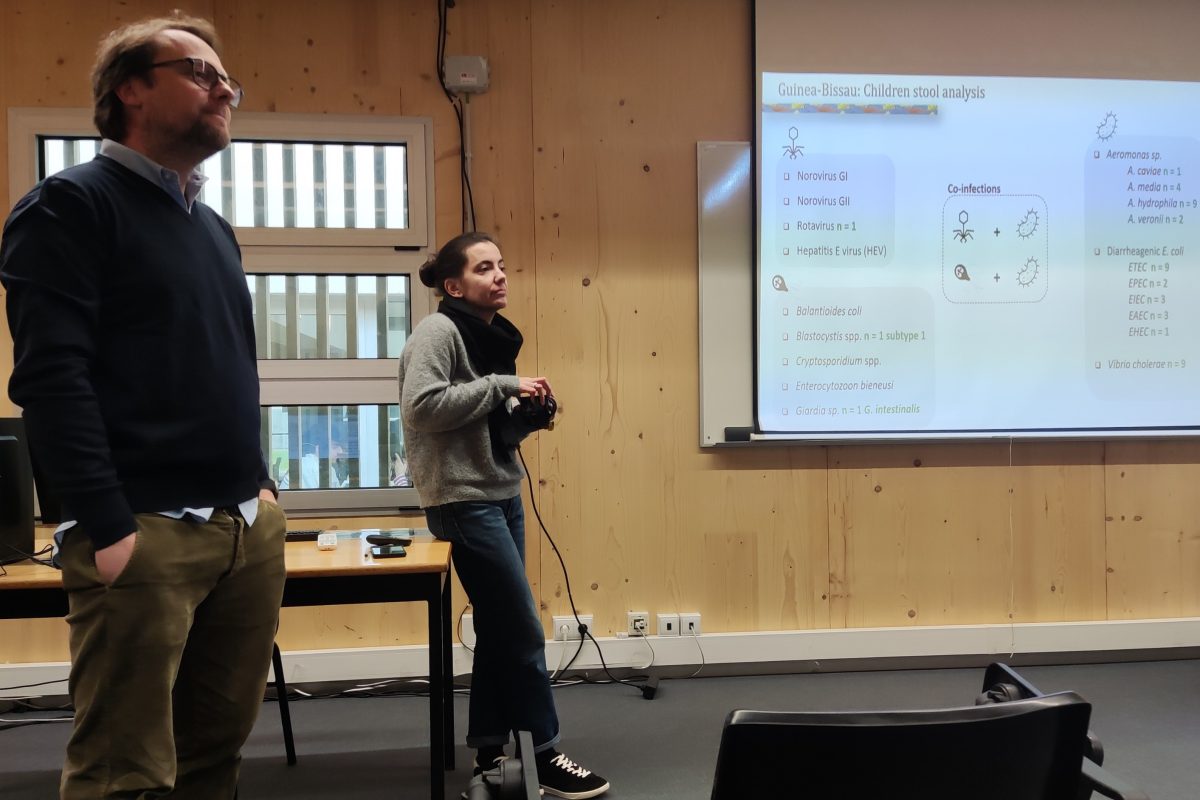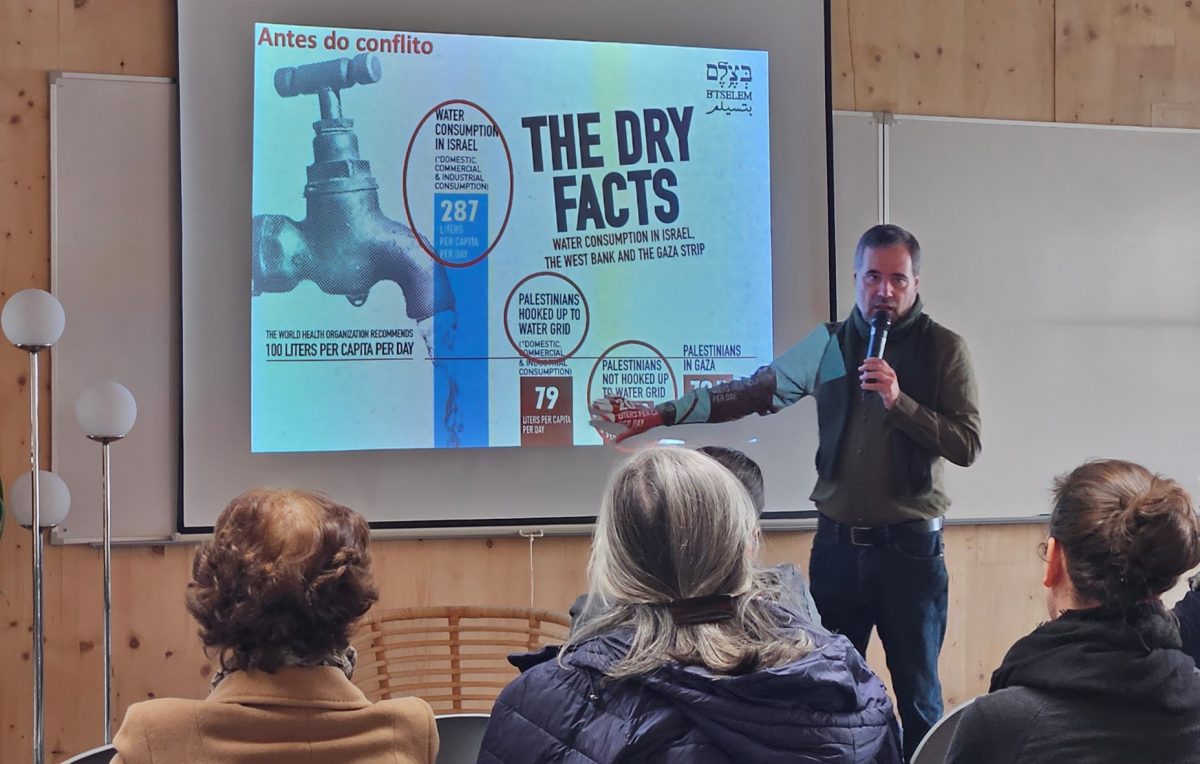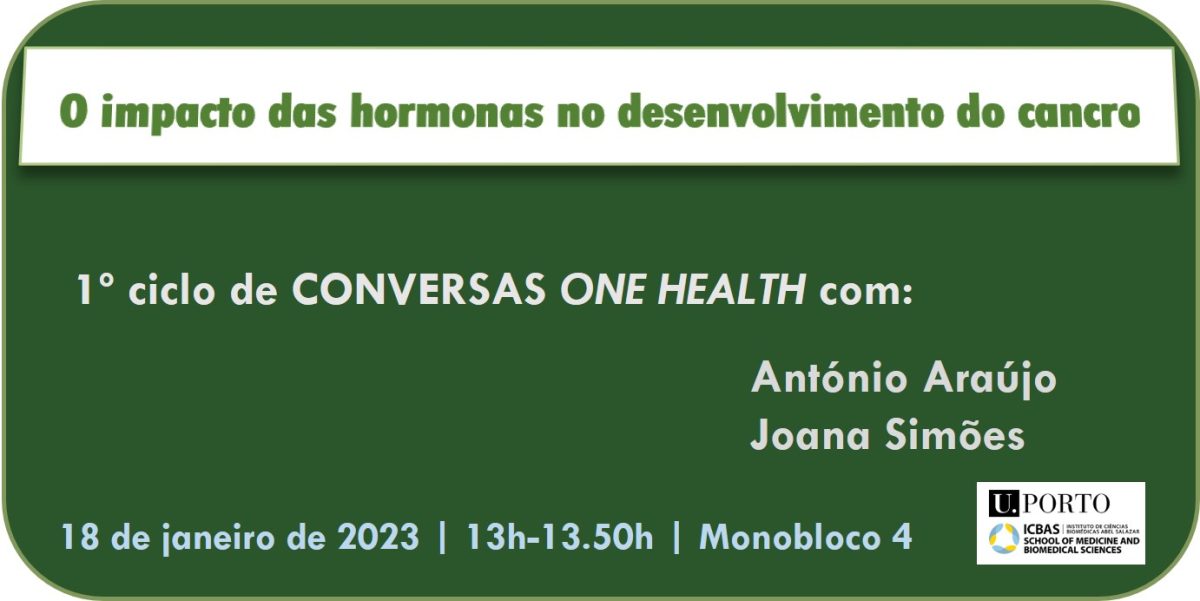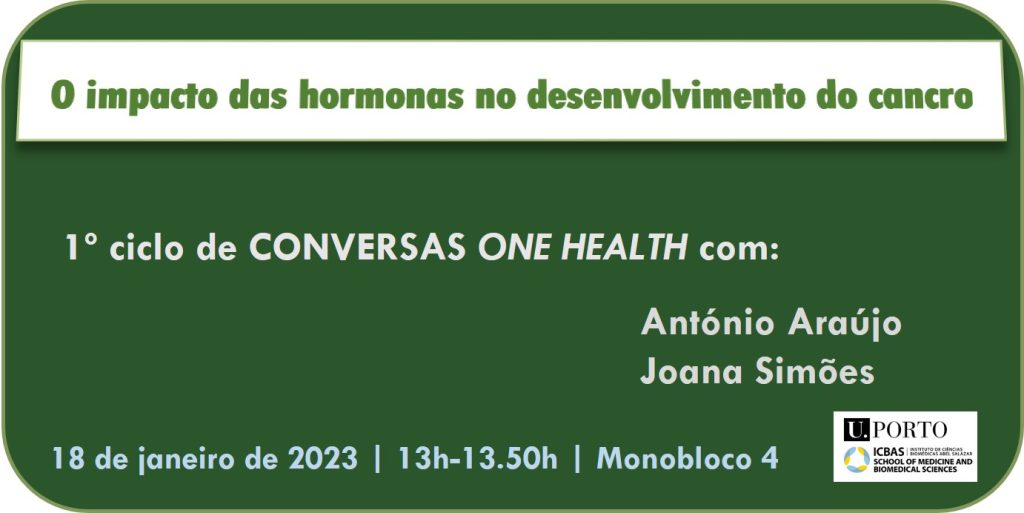By João Mesquita, ICBAS and Ana Machado, ICBAS
Death from diarrhea in childhood is largely preventable. However, the impact of diarrhea remains high and not fully characterized due to the complex interaction between the environment, food, water and sanitation, highlighting the multiple visions of One Health, particularly in Africa. A significant proportion of cases can be prevented through vaccination, clean water, sanitation and hygiene. Despite this, data from recent years report that diarrhea is responsible for the death of around 90% of children under the age of five in sub-Saharan Africa. Due to the significant mortality and long-term negative impacts on growth and development associated with chronic diarrhea, reducing the global burden of diarrhea remains a priority requiring multisectoral interventions.
Image – João Mesquita and Ana Machado at the ‘One Health Talk’ held at ICBAS on December 13, 2023. Credits: Begoña Pérez-Cabezas.







